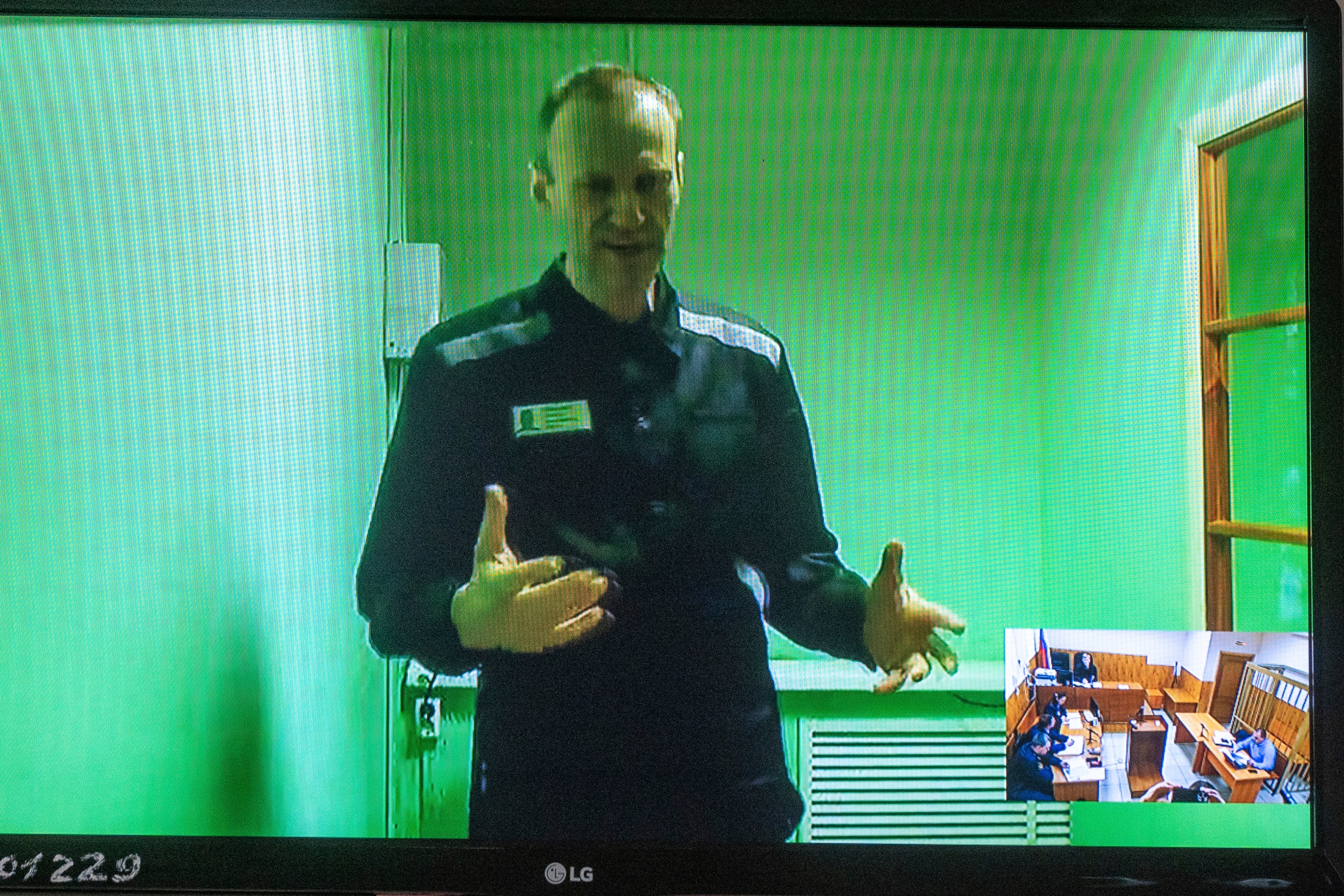‘A savage punishment’: Russian journalist Ivan Safronov given 22-year prison sentence
Human rights activists say 32-year-old’s treatment shows ‘perilous reality faced by journalists in Russia today‘

A former Russian journalist has been sentenced to 22 years in prison in what his supporters say is another chilling crackdown on press freedom.
Ivan Safronov, an ex-defence reporter for the Kommersant newspaper, was detained in July 2020 for allegedly passing state secrets to the Czech Republic.
The 32-year-old, who strongly denies the charges, rejected a plea deal from authorities last month, which would have seen him serve 12 years in jail.
Last week, Mr Safronov called the accusations he faced “absurd” and the 24-year sentence requested by the prosecution “monstrous”, insisting that he never had access to any classified documents.
State lawyers had failed to produce any witness testimony against him, he said.
In a Moscow court on Monday, Mr Safronov thanked his friends and co-workers for coming along to support him. "I love you all," he told them.
Speaking after the judgement, his lawyer Dmitry Katchev warned journalists to consider their own safety in light of the verdict.
"Safronov was given 22 years for his journalistic activity. I want each of you, who are looking at me now, to think whether it is worth staying in this profession, if somebody was given 22 years for doing his job," he said.
The sentence was a "savage, demonstratively cruel punishment”, one which showed the “current state of Russia”, human rights lawyer Pavel Chikov said.
Russian journalists and human rights activists have claimed Mr Safronov was targeted for exposing the Kremlin’s plan to sell fighter jets to Egypt. The potential deal was later scrapped after the US threatened to sanction Cairo.
Hours before the verdict, 15 independent Russian media outlets said the treason charges against Mr Safronov had not been “substantiated”.
They added that he was being persecuted for “his work as a journalist and stories he published without any regard for what the defence ministry or Russian authorities think”.
Amnesty International also hit out at his treatment, saying his “absurdly harsh sentence” showed “the perilous reality faced by journalists in Russia today”.
"It also exposes the failings of the Russian justice system and the impunity enjoyed by state agencies, who routinely fabricate cases with little or no evidence to support them,” Natalia Prilutskaya, the charity’s Russia researcher, said.
Since Vladimir Putin invaded Ukraine on 24 February, his regime has cracked down on media freedoms in Russia, with many organisations closing due to reporting restrictions about the war.
In a separate development on Monday, Novaya Gazeta, whose editor won the Nobel Peace Prize last year, had its publishing licence revoked.
Meanwhile, there were fresh concerns voiced about the condition of jailed Russian opposition politician Alexei Navalny on Tuesday.

His chief of staff, Leonid Volkov, said worsening prison conditions were threatening his health.
“Suddenly, three weeks ago, they started to dramatically worsen his conditions, which actually poses an enormous threat to his health, because no normal person could spend a long time in that ‘special’ cell,” he said in Vilnius, Lithuania, where most of Navalny’s organization has been based since its operations were banned in Russia.
“And for Alexei, who had just survived the poisoning, it is especially dangerous,” said Volkov, who keeps in touch through lawyers, adding that Navalny is still “mentally and physically very fit”.
Volkov said the team had no idea what president Vladimir Putin was thinking and tried not to think about it. “The fact that Putin is losing (the war), and is getting less and less predictable, makes the situation more dangerous,” he said.
Navalny was arrested in January last year when he returned to Russia from Germany, where he had been treated for what Western laboratory tests showed was a near-fatal attempt to poison him in Siberia with a Soviet-era nerve toxin. Russia denies trying to kill him.
He is serving more than 11 years in prison for parole violations, fraud and contempt of court charges which he denies.
In a post on his Twitter and Instagram accounts, Navalny wrote last week via his lawyers that he had been sent to a punishment cell for a third time in August in revenge for his political activity. The cell is two by three metres wide with a table, chair and bed.



Join our commenting forum
Join thought-provoking conversations, follow other Independent readers and see their replies
Comments